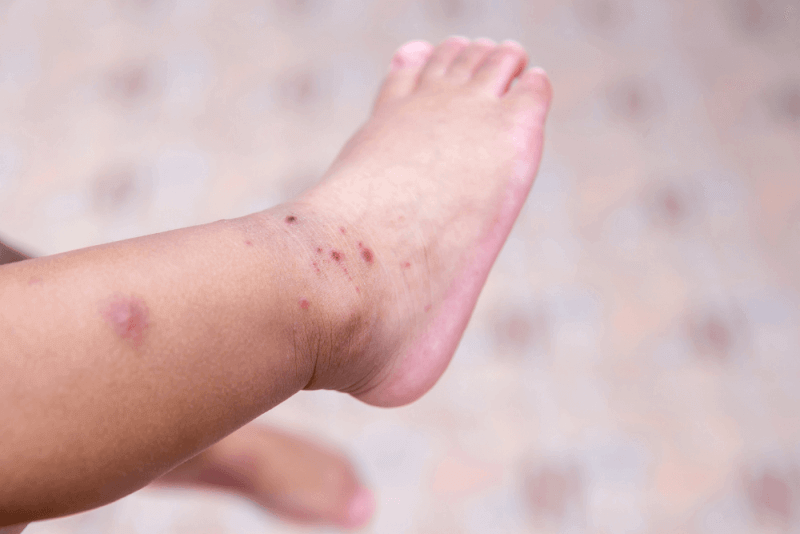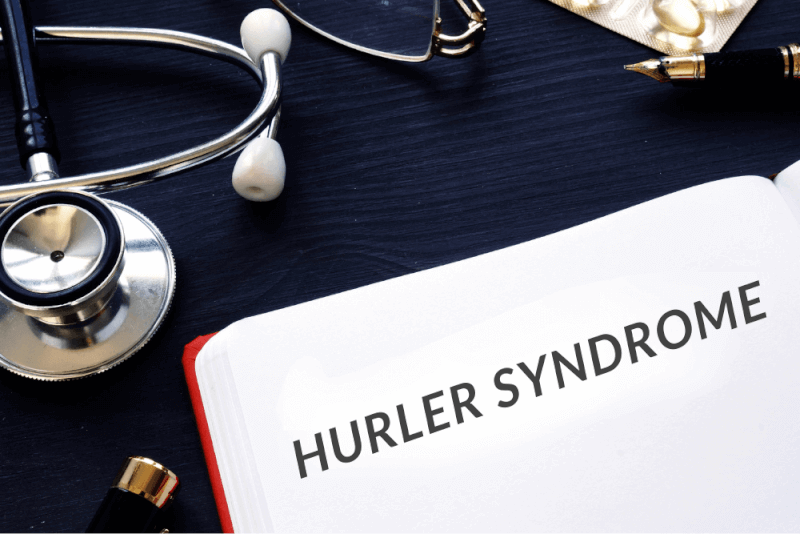What is periodic fever syndrome?
Periodic fever syndrome, also called recurrent fever syndromes, is a group of diseases that cause recurrent fevers without an infectious cause. The syndromes are classified as autoinflammatory diseases. It is usually caused by an abnormality or dysregulation of the innate immune system.
Symptoms of periodic fever syndrome usually appear during infancy or toddlerhood. During this period, children experience attacks that cause fever and other symptoms. Children may not have any symptoms between attacks. Most of these syndromes are inherited and caused by a genetic mutation.
There are several types of periodic fever syndrome. It is usually a rare condition. Tumor necrosis factor receptor-associated periodic syndrome, familial Mediterranean fever, and people of Mediterranean and Middle Eastern origin are more common.
Periodic fever syndrome diagnosis
In order to diagnose periodic fever syndrome, symptoms and family history must first be examined. In addition, some tests are also used to support recognition. These tests include the following.
Laboratory tests
Inflammation markers can be looked for with tests such as CRP and CBC. In order for inflammation markers to be visible in these tests, the disease must be in an attack phase. This is because the values return to almost normal after an attack.
Urine test
The urine protein test detects whether there are high levels of protein in the urine. In the HIDS type, a urine test for organic acid shows high levels of mevalonic acid.
Genetic testing
Genetic tests to determine which gene has a mutation are sometimes negative. The reason for the negative result is that it is not known in which gene the gene mutation occurred.
Causes of periodic fever syndrome
A significant proportion of cases of periodic fever syndrome are genetic. Mutations in certain genes cause the disease to occur. However, the genes with mutations vary. This leads to a diversification of the disease.
FMF
The gene mutation is in the MEFV gene, which gives instructions on how to make a protein called pirin. It is inherited as autosomal recessive.
PFAPA
The gene mutation that causes the PFAPA strain is unknown. But it is known not to be inherited from parents.
TRAPS
Caused by a mutation in the TNFRSF1A gene, which gives instructions on how to make a protein called TNFR, this type is inherited in an autosomal dominant way.
HIDS
HIDS, caused by a mutation in the MVK gene, which gives instructions on how to make a protein called MVK, is inherited in an autosomal recessive manner.
NOMID
Caused by a mutation in the NLRP3 gene, which gives instructions on how to make a protein called cryopyrin, this type is inherited in an autosomal dominant way.
Symptoms of periodic fever syndrome
Symptoms of periodic fever syndrome usually begin to appear in childhood. Symptoms in adulthood account for 10% of cases. There are usually no symptoms between attacks. The characteristic symptom is recurrent fever. It also causes the following symptoms.
- Symptoms of FMS include inflammation of the joints and severe joint pain. There may also be rashes on the lower legs or ankles.
- Symptoms of PFAPA include mouth sores, swollen lymph nodes and sore throat.
- Symptoms in people with TRAPS include chills, muscle pain, red and painful rashes that move from the arms and legs to the trunk.
- People with HIDS have abdominal pain, headaches, flu-like symptoms and loss of appetite.
- Babies with NOMID may be born prematurely. In addition, rashes that look like hives but do not itch are seen from birth.
Periodic fever syndrome treatment methods
Periodic fever syndrome is an incurable disease. However, the symptoms can be controlled. The treatment to be applied also varies according to the type of disease.
FMF
In FMF, a group of drugs called colchicine is used to reduce inflammation. This prevents FMF attacks and partially prevents other attacks.
PFAPA
When attacks occur, a single dose of steroids will shorten the duration of the attacks. In some cases, cimetidine is used to treat stomach ulcers.
TRAPS
Canakinumab drugs prescribed monthly are usually the most effective treatment. In addition, non-specific anti-inflammatory drugs, not including steroids, will provide relief of symptoms.
HIDS
Canakinumab is also effective in this type. During an attack, non-steroidal anti-inflammatory drugs such as ibuprofen and naproxen and steroids are also helpful.
NOMID
Canakinumab treatment is also used in the treatment of NOMID.
Types of periodic fever syndrome
Depending on the mutation in the gene, periodic fever syndrome is divided into several subtypes.
Familial Mediterranean fever (FMF)
The most commonly diagnosed periodic fever syndrome is FMF. This type causes recurrent fever and painful inflammation in the abdomen, chest and joints of children. FMF attacks usually start in childhood and decrease in frequency and severity as the child grows.
Periodic fever, aphthous stomatitis, pharyngitis, adenitis (PFAPA)
In PFAPA cases, mouth sores, sore throat and swollen lymph nodes are accompanied by periodic fever. Symptoms usually begin before the age of 4 and the frequency of attacks gradually decreases. After the age of 10, it improves.
Tumor necrosis factor receptor-associated periodic syndrome (TRAPS)
Fever attacks are accompanied by abdominal pain, diarrhea, spreading skin rashes, muscle pain and swelling around the eyes. The first symptoms of TRAPS may appear in late childhood or adulthood. This syndrome was previously called familial Hibernian fever.
Hyperimmunoglobulin D syndrome
This form, called HIDS, is characterized by skin rashes, swollen lymph nodes in the neck, abdominal pain, arthritis, periodic fever with vomiting and diarrhea. It is so named because a significant proportion of patients produce immunoglobulin D. However, this is not clinically relevant. Immunoglobulins are part of the immune system.
Neonatal-onset multisystem inflammatory disease
This type, also called NOMID, causes fever and skin rashes. The first signs of the disease appear at birth or in the first weeks of life. The gene mutation causing NOMID also causes familial common cold autoinflammatory syndrome and Muckle-Wells syndrome.







